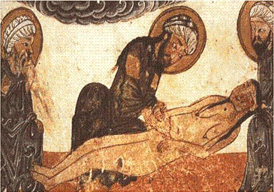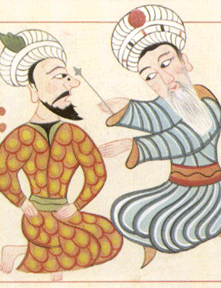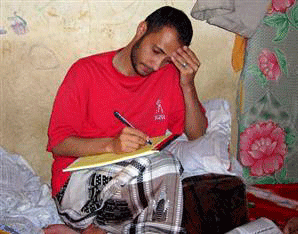
[Illustration: Teaching Caesarean Birth, al-Biruni, (973-1051 CE)
THE MEDIEVAL ISLAMIC VIEW OF MAN
The Arabic books on the Prophet’s Medicine generally begin with an overview of the human constitution. Since this is far different than would be found in medical school today, it is important to understand the context in which statements about human health were made centuries ago. In describing man, seven parts of his “natural” being were distinguished. At the most fundamental level the human body was seen as a mixture of the four basic elements that defined the material world in classical science. These were fire (hot and dry), air (hot and wet), water (cold and wet) and earth (cold and dry). In this physical respect the human body was no different from other animals. And these were the same elements that were thought to make up everything material in the universe. Continue reading The Prophet’s Medicine: Part Two

